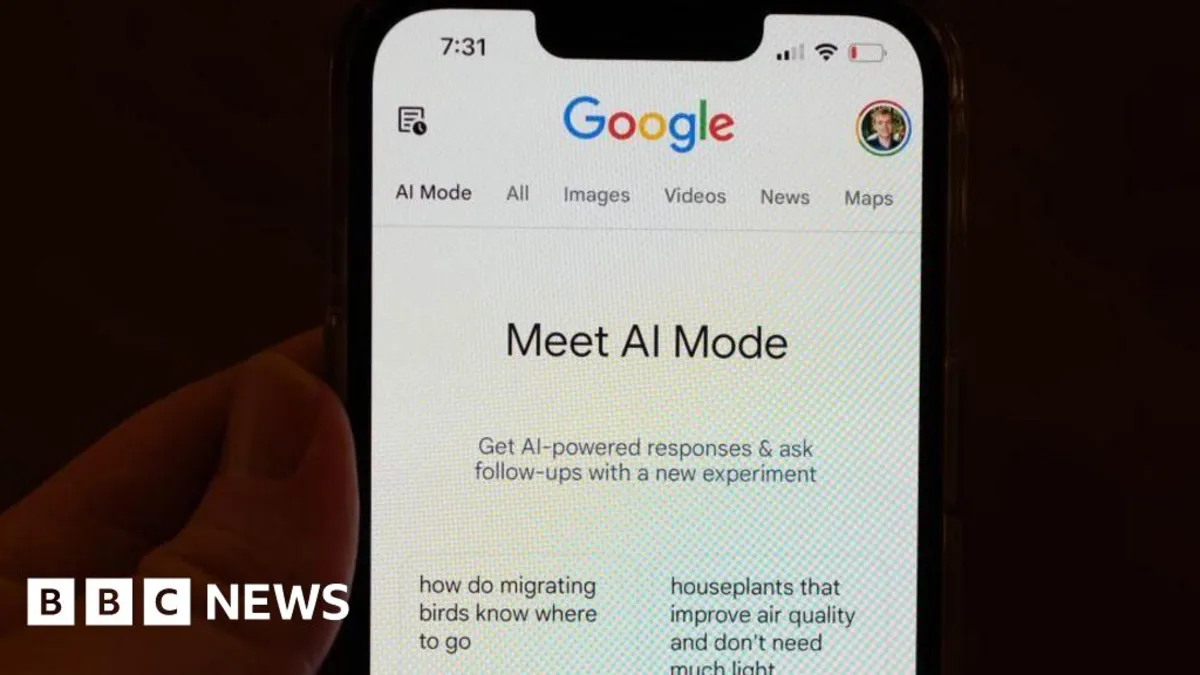
In a significant move to enhance user experience, Google has introduced a new artificial intelligence (AI) mode that embeds chatbot capabilities directly into its search engine. This update, launched in the United States on Tuesday, provides users with the opportunity to engage in conversational interactions, simulating discussions with an expert.
This new AI mode was unveiled during Google’s annual developers conference held in Mountain View, California. The initiative is part of Google's strategy to maintain its competitive edge against rivals like ChatGPT and various other AI services that pose a threat to the company's longstanding dominance in online search.
According to Sundar Pichai, the chief executive of Google-parent Alphabet, the integration of the company’s Gemini chatbot into its search functionality marks a pivotal phase in the evolution of its AI platform. "With more advanced reasoning, you can ask AI both longer and more complex queries," Pichai remarked, indicating the chatbot's enhanced capabilities.
In addition to the AI mode, Google announced the development of new augmented reality glasses. This venture comes over a decade after the initial release of Google Glasses, which ultimately did not succeed in the market. The upcoming glasses, being developed in collaboration with eyeglass retailers Warby Parker and Gentle Monster, will include features such as a camera, microphone, and speakers. This renewed focus aims to rival Meta's AI-powered glasses, produced in partnership with Ray-Ban.
Leo Gebbie, principal analyst and director for the Americas at CCS Insight, highlighted that Google’s strategy to integrate AI more deeply into its products has been anticipated. He suggested that the chatbot functionality could significantly reduce the number of web pages users need to navigate, allowing for more complex queries. "For the end user, this should mean less time spent browsing the web itself, and more time spent talking with Google's AI tools," he explained.
Any enhancements made to Google Search are critical, as this segment generates the majority of the company’s revenue. However, experts like Cory Johnson, chief market strategist at Epistrophy Capital Research, noted that while Google is becoming more efficient at answering questions, it may become less effective at generating clicks—an essential metric for revenue generation.
Despite these advancements, Google has faced challenges in its recent attempts to incorporate AI into its services. The AI Overviews feature, which provides AI-generated summaries at the top of search results, initially received criticism for some nonsensical responses. For instance, one user was advised that non-toxic glue could help cheese stick to pizza, while another response suggested humans should eat a rock daily. Although a Google spokesperson stated these incidents were isolated, they did raise concerns among users.
Nonetheless, Pichai reported that AI Overviews now garner approximately 1.5 billion uses per month across more than 200 countries and territories. In key markets like the United States and India, AI Overviews contribute to over 10% of growth in the types of queries that utilize this feature. "It's one of the most successful launches in search in the past decade," he added, underscoring the positive reception of AI advancements.